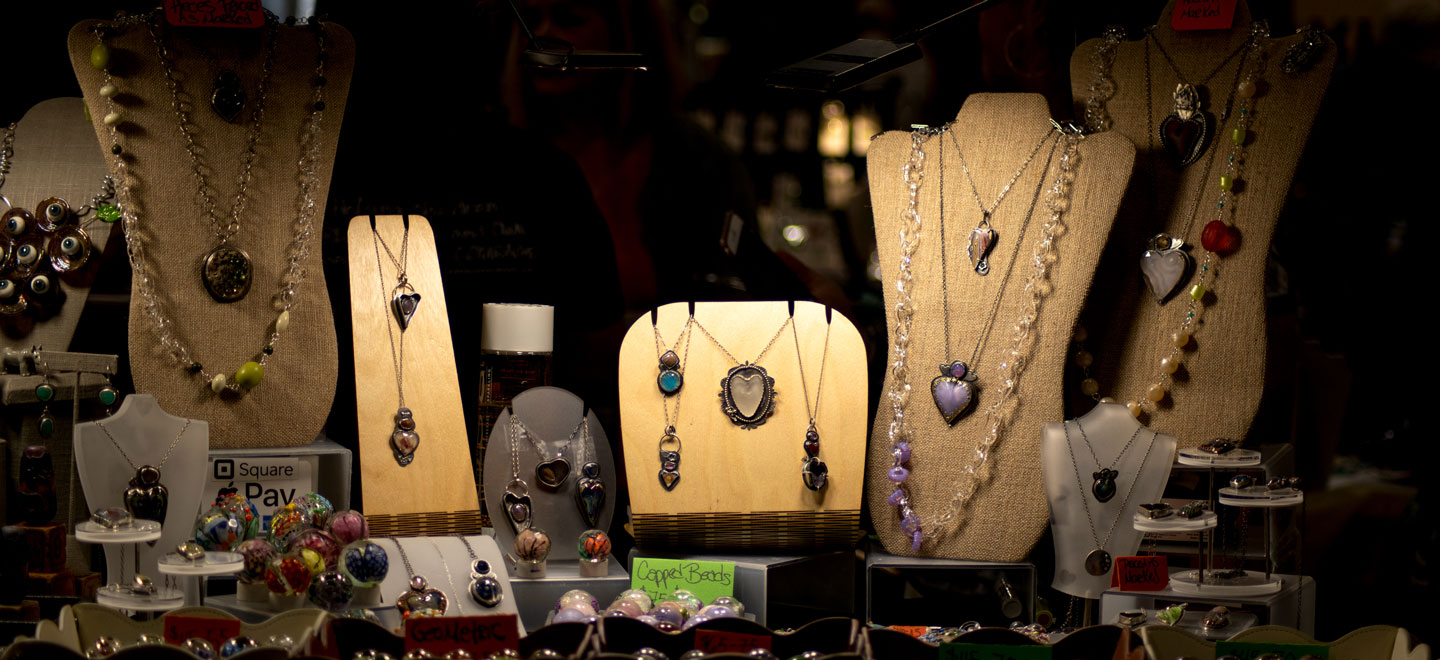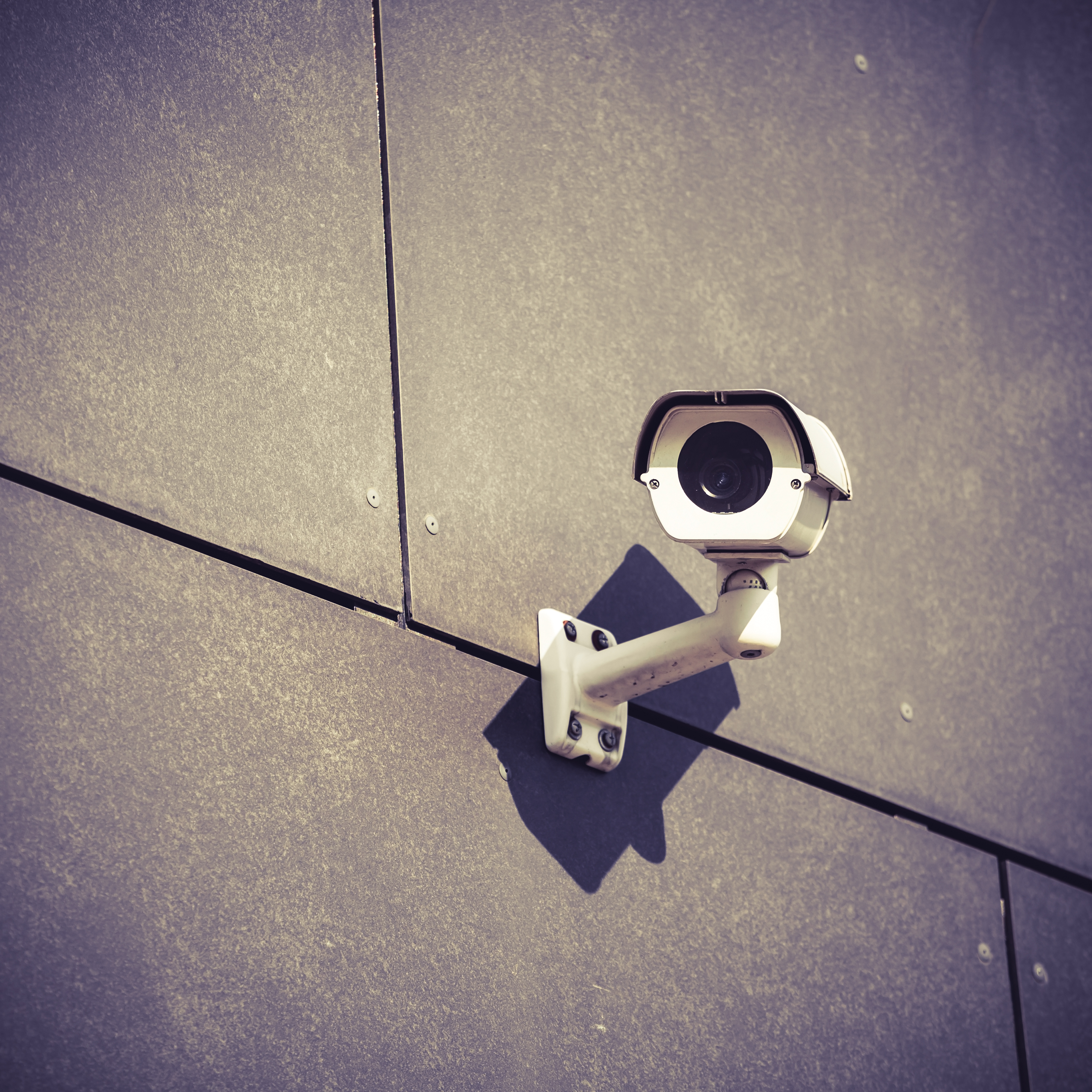Personal safety is an important issue in our field. Unfortunately, it is rarely given due attention until the aftermath of a tragedy when a member of our community is the victim of burglary or assault. This article will explore basic prevention strategies to protect yourself and your inventory.
Jewelry is a Risky Business
The dangers of our business are nothing new. At Halstead, we used to do trade shows regularly back in the 1980’s. We would drive in a caravan, sometimes with hired security guards, and post lookouts when we stopped for gas. No joke. My father would personally guard our event showrooms overnight. That may sound paranoid; but, the fact is, things happen in the jewelry business and sometimes people get hurt, so your personal safety can never be overlooked.
Back then, roadside assault and battery were relatively common in the jewelry trade. Criminals would find targets at trade shows and jewelry events and then tail them away from the venue area, where there was a known security presence. They would wait for jewelers to stop on their route and then commit armed robbery. Some attacks even occurred when trucks were run off the road in remote areas. Scary stuff.
My parents moved out of the Phoenix Metro area during that same decade because they were one of the few Valley jewelry businesses that had not been hit in a rash of armed robberies during business hours. With two young daughters, they decided to move to quieter pastures. Our facility in Prescott is now built like a fortress (thanks, dad). We take security & safety extremely seriously even though we no longer deal with high-end goods.
Jewelers are Still Targets Today
Anyone who has a history in the jewelry world can tell you tales about the muggings for sample cases that were once common in jewelry districts. Friends of ours were put in the hospital by assailants to get into their safe. Others have had their car windows smashed in order to steal merchandise cases inside. I know of several incidents that have occurred in just the last few years.
Yes, these things really do happen. While my intention is not to scare you, it is meant to get your attention. A measure of common sense is required to stay safe and protect your business. There are precautions you can take that will limit your risk.
Security in the Studio
Personal safety habits start in your studio space and home. These days, video surveillance is both affordable and effective as a deterrent to crime. Perpetrators are more likely to pass over targets with video cameras visibly in place. It is easier than ever to buy adequate systems from stores like Costco as well as security specialist businesses. You can often install surveillance equipment yourself and link it to your cell phone or computer system for recording back-ups
Also, consider alarms and a safe for precious gems and materials. Anything that slows down thieves will make them think twice about choosing your business as a target instead of easier targets down the road.
Think beyond the typical security equipment you can buy or lease and consider your habits. Some behaviors at home and on the road can put you at risk. Consider the following tips for personal safety in the jewelry business.
1. If you have brick & mortar retail space or a studio with high-value merchandise, consult security professionals
Thoroughly securing a physical location is complicated. It may also mean a new level of personal safety habits as well as commute strategies to and from work each day. If you decide to open a store, meet with insurers and security professionals before you even sign a lease. They will have important tips and parameters to consider depending on the value of your inventory and the size of your business. They can also advise you on choosing a secure location.
2. Know what your insurance policy covers and does not cover
Consult with business insurance professionals. Many companies will not insure jewelry businesses at all. We recommend contacting the market leader for jewelry business insurance, Jewelers Mutual. If you get a policy, make sure you understand what it covers and any actions that would nullify your coverage.
3. Keep a low profile
Know when to network and when to lay low. Including openly talking about how financially well your business has done this year or going into too much detail about the materials you keep on hand. Even in our hometown where Halstead is located, I usually tell strangers that I work in the craft business. I am careful to avoid the word “jewelry” unless I’m around people I know and trust.
Understand that jewelry thieves come in all varieties. Some crimes in our trade are simply unlucky encounters with desperate and dumb people looking for easy targets. Other crimes are committed by world-class thieves. There is a huge spectrum in between. Don’t make the mistake of minimizing the threats to your business.
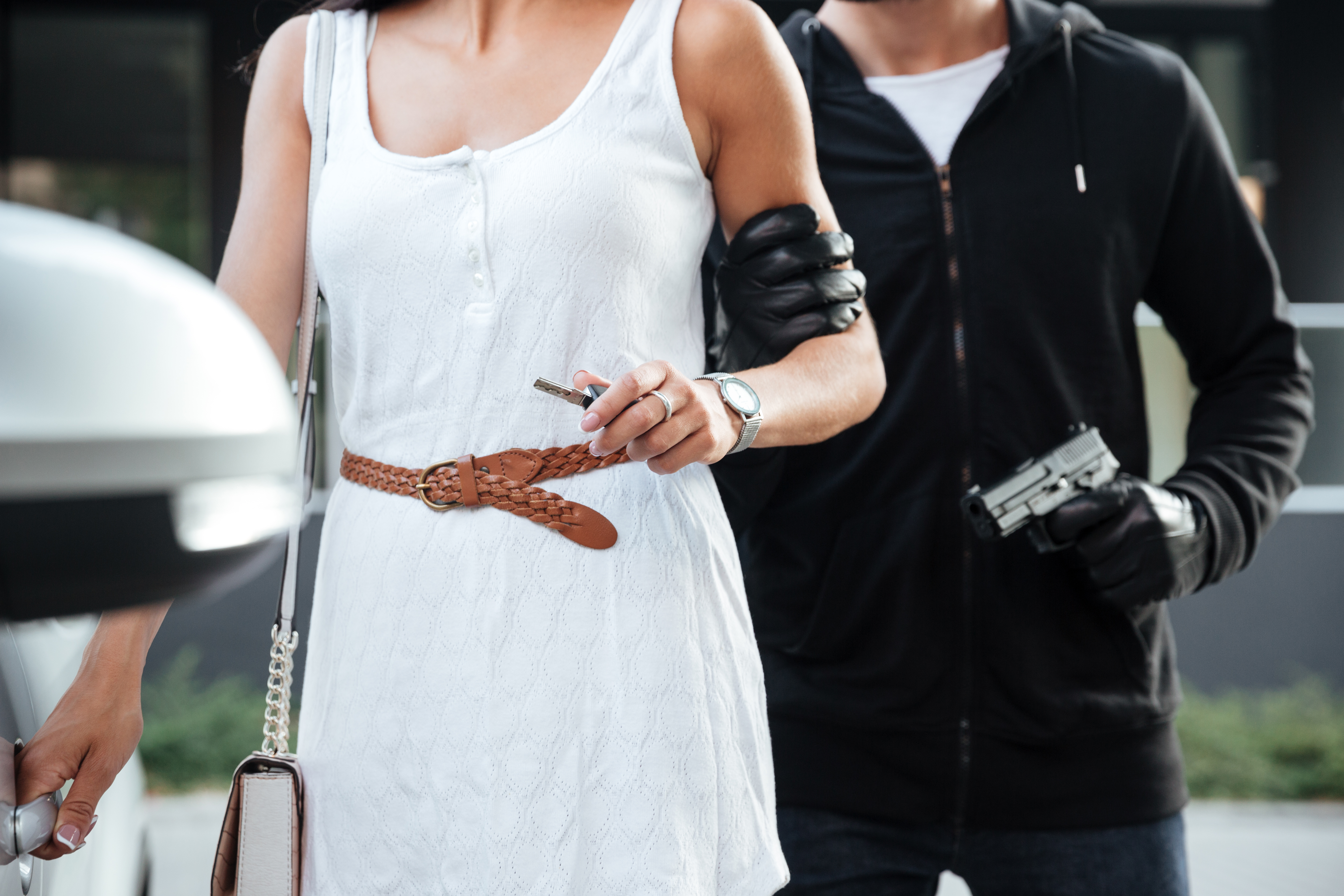 4. Most criminals are stupid
4. Most criminals are stupid
Some thieves hear the word “jewelry” and automatically assume you are talking about a treasure trove of the queen’s jewels. Some of the worst incidents I know of were against jewelers whose work did not have great intrinsic material value. Don’t assume you are not a target because you work in silver or have a relatively low-priced line. Criminals don’t necessarily know what’s in your case, but they may imagine it is a huge score.
But don't underestimate them all. On the flip side, some thefts are impressively well-planned and executed. Your jewelry is not only at risk on a show floor. The smartest criminals plot out interceptions when they know grabs will be unexpected and relatively easy. Don’t get yourself into those situations.
Security for Jewelers Traveling for Work
Jewelers are sometimes most at risk during work travel. Trade shows and events are considered target-rich environments by criminals because so many jewelry professionals are located in one place where they may be in vulnerable situations. Use common sense and basic precautions to protect yourself.
5. Travel wisely on departure day
If you're traveling with luggage tags, try to use one that covers your identification and can be opened when needed. Keep your cell phone properly charged! A portable charger is an invaluable investment here. You may also want to consider programming the most important numbers for easy dialing in the event of an emergency. David Sexton from Jeweler's Mutual even suggests having two cell phones: one you can keep hidden on yourself and one you can surrender if forced to do so during a robbery. Fill up your gas tank the night before departure day, when merchandise will be with you if you are driving. And get well away from the event area before making any stops. Be vigilant about cars that seem to be following you when you leave the venue location. Be sure to keep moving. Any stops can only help a criminal who's targeted you develop their plan more. Map out where the police station is located in your host city so you can drive straight there if you notice anything suspicious. And most importantly, don't travel at night unless absolutely necessary. Darkness creates a built-in cover for criminals.
6. Use the safe room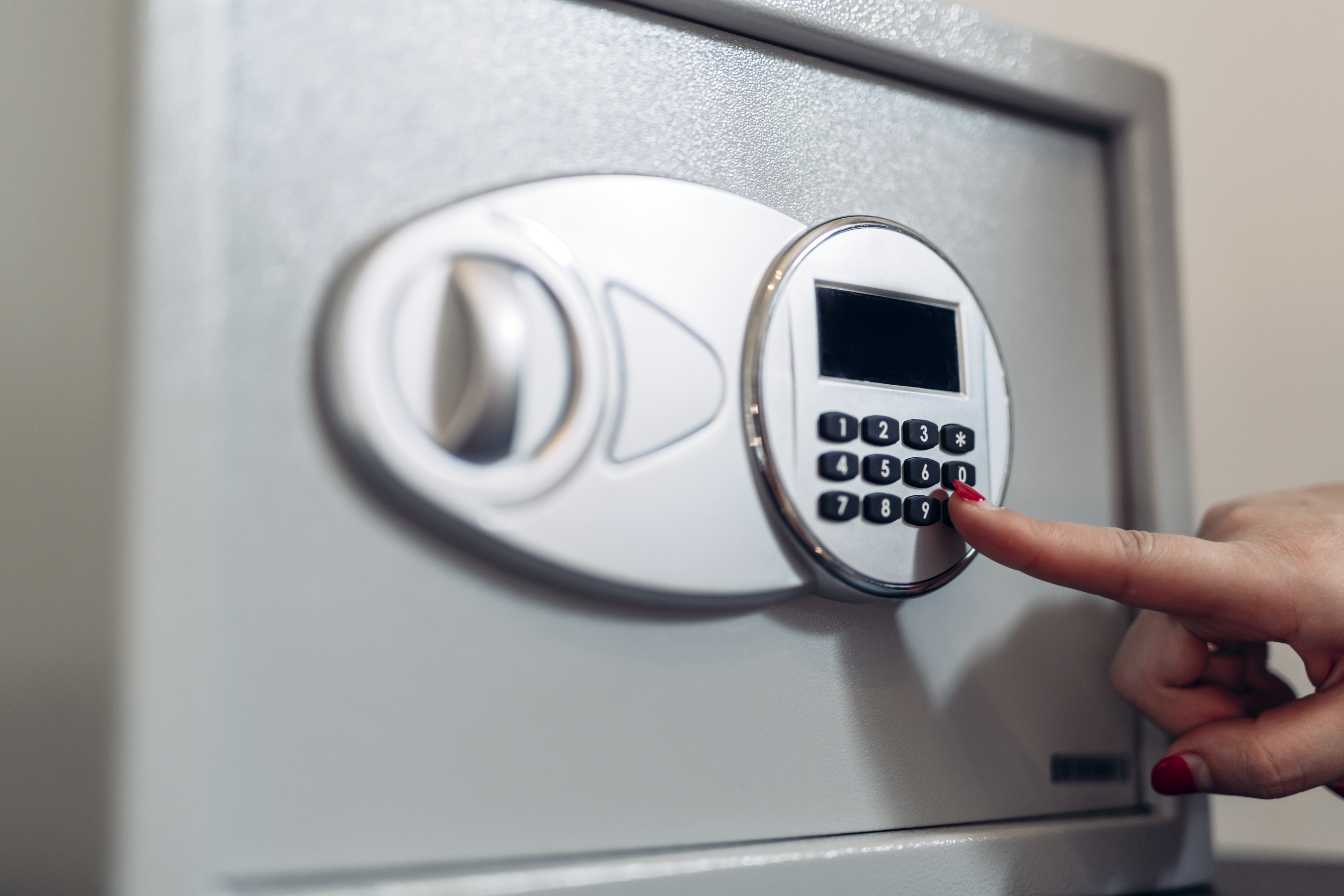
If your show offers a safe room or secure overnight storage space, use it! Do not take goods back and forth to your hotel room with you and avoid storing them in your car. Safe room closing time queue lines may be long and annoying, but they keep you safe.
7. Do not tell locals what you do for a living
I have a travel alter-ego, “Hilary the middle school math teacher.” I never tell waiters, taxi drivers, hotel clerks, or bartenders that I work in jewelry. You have no idea who these people are or who their friends are. They are not going to become clients for you so don’t take unnecessary risks. Lie about your profession. No one asks questions about middle school math. Super boring, super safe.
8. Don’t wear your exhibitor badge outside event centers
Wearing a badge that identifies you as a member of the trade is literally wearing a target sign. Just as you wouldn’t tell random strangers that you work in the biz, don’t advertise it with your exhibitor badge either.
9. Never post your locations on social media
If you are traveling with inventory, wait to post shots of your travel adventures until you are safely back home. Never post what hotel you are staying in or restaurants you will frequent more than once. Don’t post how or when you will be traveling to and from the show. Keep details private if they will make you vulnerable. And be sure to never leave your inventory unsecured while out at shows.
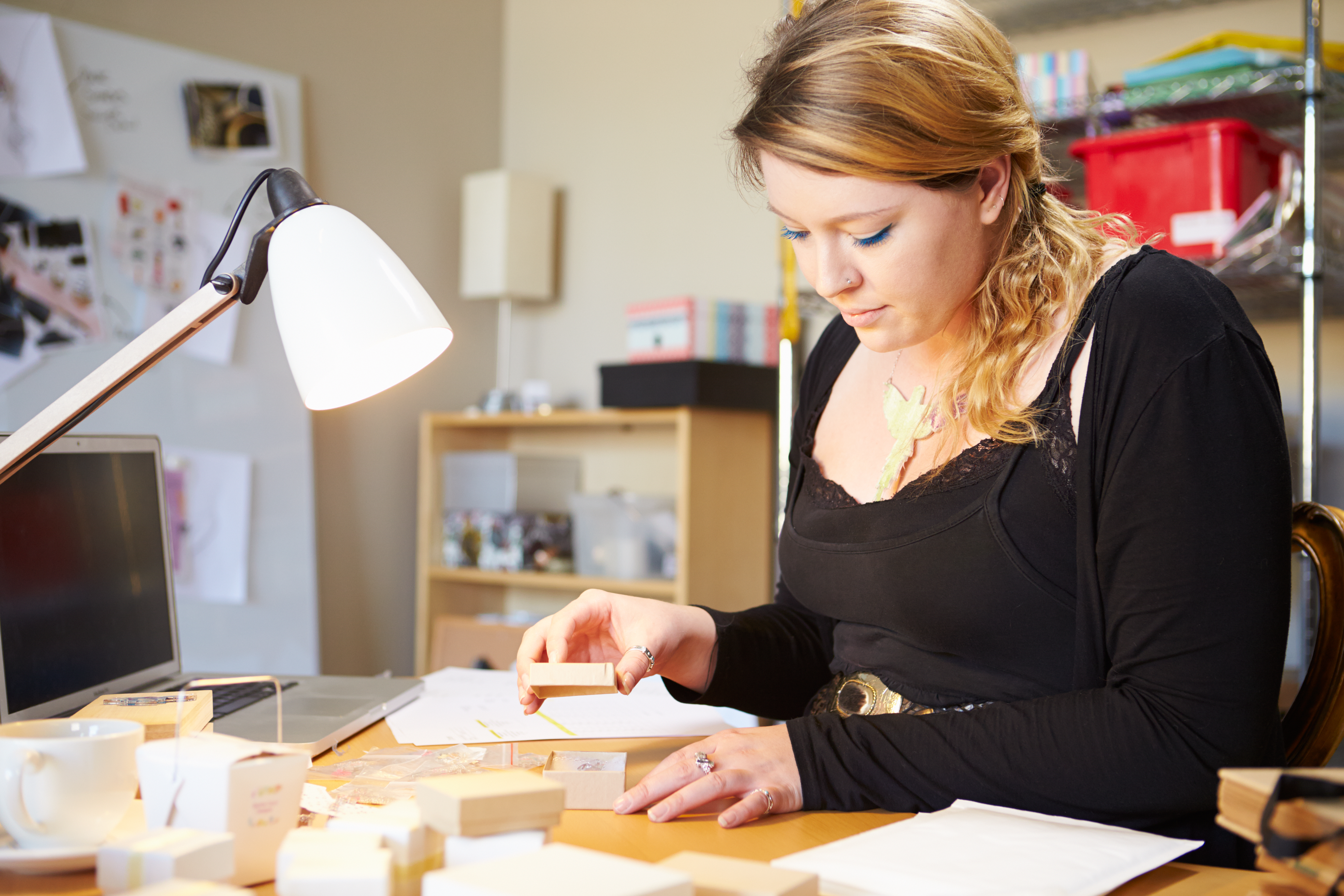 10. Document your inventory
10. Document your inventory
Take photos of all the jewelry you are traveling with and only take what you truly think you'll need for the show you're going to. This isn’t for marketing so it can just be a few snaps of everything on a tabletop. Together with sales invoices, that will help you file a claim if any loss or damage occurs during your trip.
Personal safety practices are professional skills in the jewelry world. Take the time to educate yourself and prepare. In our business, the adage better safe than sorry takes on a whole new meaning.
Special thank you to David Sexton from Jeweler's Mutual Insurance for contributing to some of these tips.
For more tips on having a successful jewelry business check out:
How to Use Jewelry Exhibition Opportunities to Build Your Business




